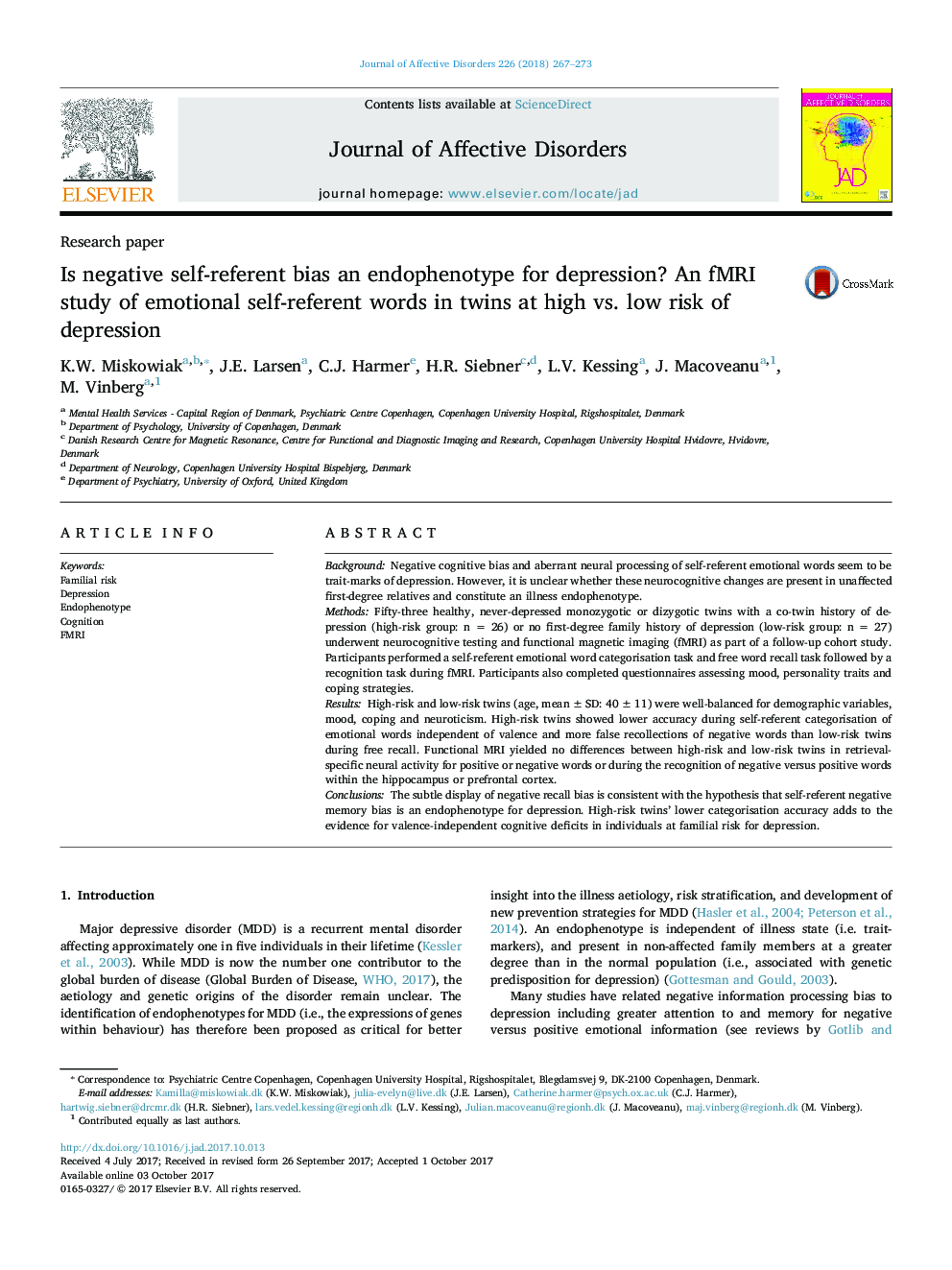| Article ID | Journal | Published Year | Pages | File Type |
|---|---|---|---|---|
| 5721663 | Journal of Affective Disorders | 2018 | 7 Pages |
â¢High-risk twins show impaired self-referent emotional processing and negative memory bias.â¢This adds to the evidence for cognitive deficits in individuals at familial risk for depression.â¢Negative self-referent memory bias may represent an endophenotype for depression.â¢No differences were seen between high-risk and low-risk twins in memory-related brain activity.
BackgroundNegative cognitive bias and aberrant neural processing of self-referent emotional words seem to be trait-marks of depression. However, it is unclear whether these neurocognitive changes are present in unaffected first-degree relatives and constitute an illness endophenotype.MethodsFifty-three healthy, never-depressed monozygotic or dizygotic twins with a co-twin history of depression (high-risk group: n = 26) or no first-degree family history of depression (low-risk group: n = 27) underwent neurocognitive testing and functional magnetic imaging (fMRI) as part of a follow-up cohort study. Participants performed a self-referent emotional word categorisation task and free word recall task followed by a recognition task during fMRI. Participants also completed questionnaires assessing mood, personality traits and coping strategies.ResultsHigh-risk and low-risk twins (age, mean ± SD: 40 ± 11) were well-balanced for demographic variables, mood, coping and neuroticism. High-risk twins showed lower accuracy during self-referent categorisation of emotional words independent of valence and more false recollections of negative words than low-risk twins during free recall. Functional MRI yielded no differences between high-risk and low-risk twins in retrieval-specific neural activity for positive or negative words or during the recognition of negative versus positive words within the hippocampus or prefrontal cortex.ConclusionsThe subtle display of negative recall bias is consistent with the hypothesis that self-referent negative memory bias is an endophenotype for depression. High-risk twins' lower categorisation accuracy adds to the evidence for valence-independent cognitive deficits in individuals at familial risk for depression.
